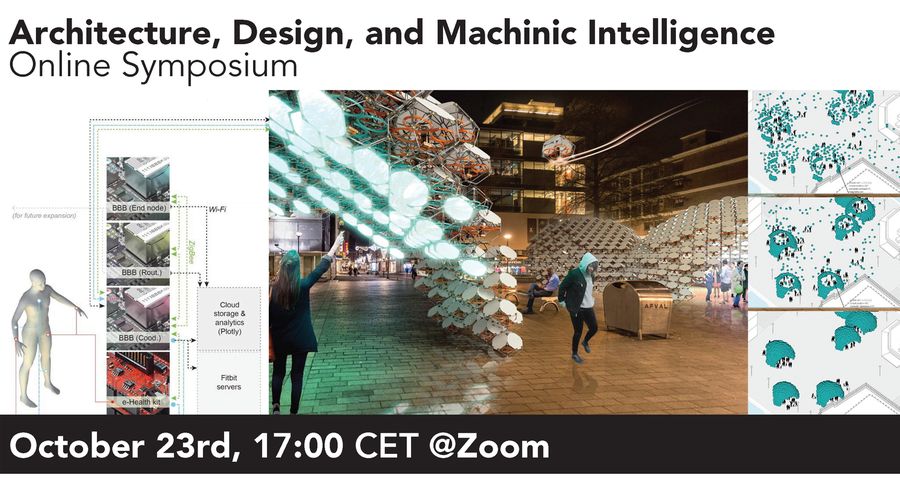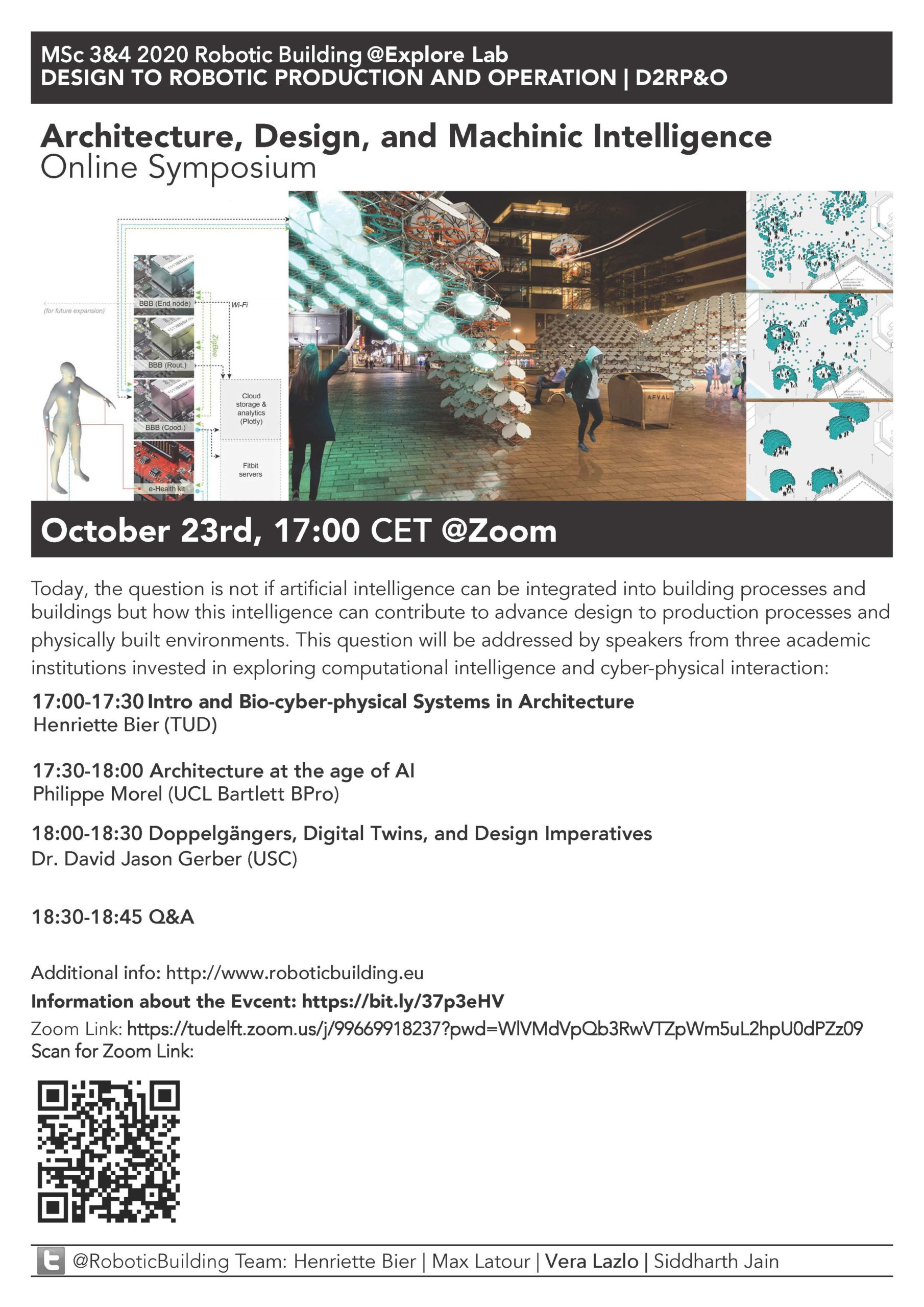Zoom Link: https://tudelft.zoom.us/j/99669918237?pwd=WlVMdVpQb3RwVTZpWm5uL2hpU0dPZz09
Abstract:
Today, the question is not if artificial intelligence can be integrated into building processes and buildings but how this intelligence can contribute to advance design to production processes and physically built environments. This question will be addressed by speakers from three academic institutions invested in exploring computational intelligence and cyber-physical interaction
Schedule:
17:00-17:30 Intro and Bio-cyber-physical Systems in Architecture
Henriette Bier (TUD)
17:30-18:00 Architecture at the age of AI
Philippe Morel (UCL Bartlett BPro)
18:00-18:30 Doppelgängers, Digital Twins, and Design Imperatives
Dr. David Jason Gerber (USC)
18:30-18:45 Q&A
About the Speakers:
Henriette Bier (TUD)
TITLE:
Bio-cyber-physical Systems in Architecture
ABSTRACT:
Today’s physical-digital continuum challenges architects to envision buildings and building processes as bio-cyber-physical systems that rely on interactions between human and non-human agents. These operate as multi-agent systems consisting of autonomous entities, which act towards achieving goals together by perceiving through sensors and by acting through actuators in all phases from design to production and operation of physically built environments.
BIO:
http://www.roboticbuilding.eu/about/who/henriettebier/
Philippe Morel (UCL Bartlett BPro)
TITLE:
Architecture in the age of AI
ABSTRACT:
Artificial intelligence systems have long sought a logic of knowledge, in line with the “logic of thought” of G. Boole which has led to the exceptional progress known to all in both the formalization of this thought and in its technological development, namely the computer. However, if it was possible to define rules of thought, it was much more difficult to encode all the knowledge accumulated over thousands of years by the human species, to allow expert systems to compete with it and to provide good answers to often trivial questions …
The Internet has turned all this upside down since knowledge was now formalized – or at the very least available and structured – online, as Wikipedia attests. We would therefore no longer need the thousands of programmers coding partial knowledge in expert systems, but “only” a new paradigm making it possible to suck up online knowledge (which we assume that it reflects knowledge of humanity as a whole). This is what the Google Knowledge Graph has accomplished, and more recently the GPT-2 and GPT-3 type systems.
In view of the practical efficiency of this last GPT-3 system, and because ultimately all the architectures that could be created by humans for a few thousand years are potentially already created by artificial intelligences, we will ask in our intervention, beyond its practical utility, the question of the conceptual relevance of architecture.
BIO:
Philippe Morel is an architect and theorist, co-founder of EZCT Architecture & Design Research (2000) and initiator and founding CEO of the large-scale 3D-printing corporation XtreeE (2015). He is currently a visiting teaching fellow at UCL Bartlett and an Associate Professor at the École nationale supérieure d’architecture Paris-Malaquais, where he headed the Digital Knowledge department (co-founded with Pr. Girard).
David Jason Gerber (USC)
TITLE:
Doppelgängers, Digital Twins, and Design Imperatives
ABSTRACT:
As we embrace the evolving cyber physical social of the built environment, and as we pivot to address the growing set of design imperatives, we must explore architecture as a solution space, as a metier of leadership and creative agency for change. Through a deep interest in the development of digital twins that are stridently goal driven we can foster a dialogue of purpose, of transdisciplinary innovation, and of trans-binary approaches to the design and stewardship of the built environment.
BIO:
Dr. Gerber holds a joint appointment at USC’s Viterbi School of Engineering and the USC School of Architecture as an Associate Professor of Civil and Environmental Engineering Practice and of Architecture. Dr. Gerber is also the program Director for the Civil Engineering Building Science undergraduate program and the program Director for the Masters in Advanced Design and Construction Technology Program. He teaches in both the Viterbi School of Engineering and the School of Architecture.
Dr. Gerber’s professional experience includes working in architectural, engineering and technology practices in the United States, Europe, India and Asia for Zaha Hadid Architects in London; for Gehry Technologies in Los Angeles; for Moshe Safdie Architects in Massachusetts; The Steinberg Group Architects in California; and for Arup as the Global Research Manager. Dr. Gerber’s research has been industry, fellowship, and NSF funded and is focussed on the development of innovative systems, tools, methods for design of the built environment. He currently advises, and co advises PhD students from Architecture and Engineering on topics that integrate computer science, robotics, engineering, with architecture.


